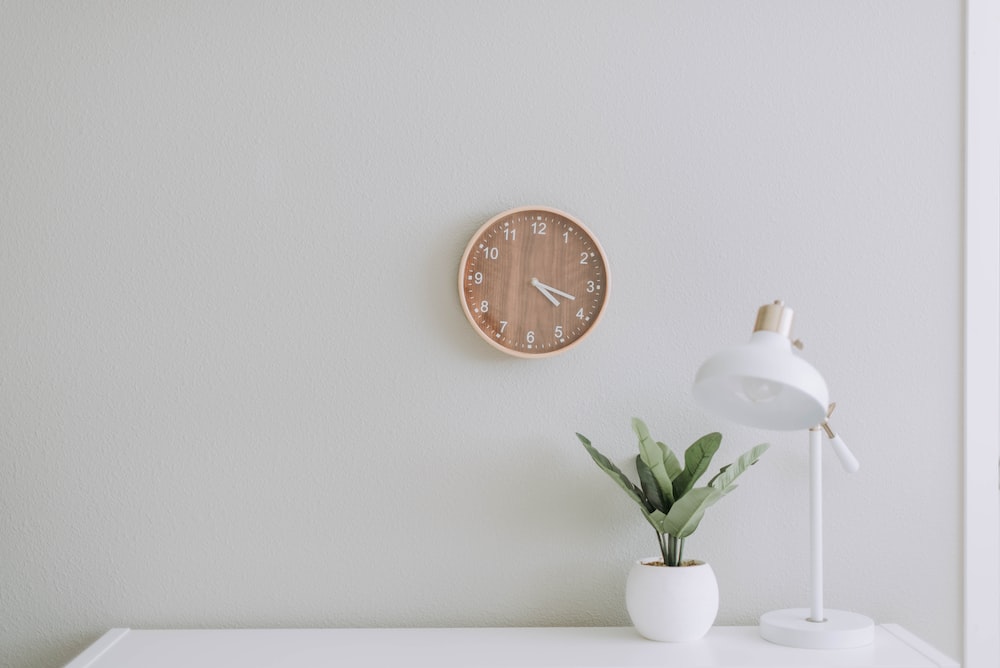Taking an A1C test is an important way to measure your blood glucose levels, and the best time of day to do so is in the morning after fasting overnight. This gives a more accurate picture of your overall blood glucose levels. Fasting overnight allows your body to use up any stored glucose, giving the most reliable result. The A1C test can help you and your doctor make decisions about how to manage your diabetes.
It is important to talk to your doctor about when to take your A1C test, as different factors such as medications and food intake can also affect your results.
Your doctor may recommend taking the test at certain intervals or times throughout the year, depending on your individual needs.
A1C testing is an important part of managing diabetes. It provides insight into how well the body is managing blood sugar levels over time. The optimal time for A1C testing is usually every three months, although it can be done more frequently if needed. Testing should be done after a period of stability in diet and exercise habits. Before testing, it is important to speak to your healthcare provider about any medications or supplements that might affect results. Knowing when and how to test for A1C can help individuals understand their diabetes and make sure they are effectively managing their blood sugar.
Introduction

Taking an A1C test is an important way to measure your blood glucose levels, and the best time of day to do so is in the morning after fasting overnight. This gives a more accurate picture of your overall blood glucose levels. Fasting overnight allows your body to use up any stored glucose, giving the most reliable result. The A1C test can help you and your doctor make decisions about how to manage your diabetes.
It is important to talk to your doctor about when to take your A1C test, as different factors such as medications and food intake can also affect your results.
Your doctor may recommend taking the test at certain intervals or times throughout the year, depending on your individual needs.
Time of Day to Test Blood Sugar Levels
It is important to test your blood sugar levels regularly. The best time of day to do this will vary depending on your lifestyle, but generally it is recommended to check your blood sugar before meals, 2 hours after meals, and at bedtime. If you are taking insulin or if you have diabetes, ask your doctor or healthcare professional for guidance on when to check your blood sugar.
Remember to keep a consistent schedule and talk to your doctor or healthcare professional about the best time of day to test your blood sugar levels.
Keep in mind the importance of testing your blood sugar levels and make sure to follow your doctor’s instructions.
Strategies to Test Blood Glucose Levels
 Testing blood glucose levels is an important part of managing diabetes. It can help you understand how certain foods, activities, and medications affect your blood sugar. There are several strategies for testing, such as self-monitoring, using a continuous glucose monitor, or visiting a lab for a fasting blood test. Talk to your doctor to determine which strategy is best for you.
Testing blood glucose levels is an important part of managing diabetes. It can help you understand how certain foods, activities, and medications affect your blood sugar. There are several strategies for testing, such as self-monitoring, using a continuous glucose monitor, or visiting a lab for a fasting blood test. Talk to your doctor to determine which strategy is best for you.
Factors in Testing Blood Glucose Levels
Testing blood glucose levels is an important measure of health. Factors influencing blood glucose levels include diet, exercise, medications, and stress. Diet should be balanced and include nutrient-rich foods like whole grains, lean proteins, and healthy fats. Exercise can help maintain healthy blood sugar levels by burning glucose for energy. Certain medications may also affect blood sugar levels. Finally, it is important to manage stress levels to reduce the risk of high or low blood glucose levels.
Foods to Eat Before a1c Test
 Before taking an A1C test, it is important to ensure that you are eating the right kinds of foods. Eating a balanced diet of lean proteins, complex carbohydrates, and healthy fats will help stabilize your blood sugar levels. Eating a snack before the test can also help to reduce the risk of hypoglycemia. Foods like yogurt, nuts, seeds, fruits, and vegetables are all great options to consider. Avoid sugary and processed foods, as these can lead to spikes in your glucose levels.
Before taking an A1C test, it is important to ensure that you are eating the right kinds of foods. Eating a balanced diet of lean proteins, complex carbohydrates, and healthy fats will help stabilize your blood sugar levels. Eating a snack before the test can also help to reduce the risk of hypoglycemia. Foods like yogurt, nuts, seeds, fruits, and vegetables are all great options to consider. Avoid sugary and processed foods, as these can lead to spikes in your glucose levels.
Eating a healthy diet prior to testing is one of the best ways to ensure accurate results.
By following these guidelines, you can help to ensure that your A1C test results are as accurate as possible.
Risks of Taking a1c Test
The A1C test is a simple blood test that measures your average blood sugar levels over the past 3 months. While it can be an important tool for tracking your diabetes, there are some risks associated with taking the test. These may include infection at the site of the blood draw, inaccurate results due to other factors such as hemoglobin variants and dehydration, and incorrect interpretation of results. It is important to talk to your doctor before taking the A1C test to discuss any potential risks.
Benefits of a1c Test
 A1c tests are an important tool to monitor diabetes management. The test measures the average amount of glucose in the blood over a period of 3 months and can help detect changes in blood sugar levels that may require further investigation or treatment. Benefits of A1c testing include improved diagnosis, better assessment of diabetes control, and improved communication between healthcare providers and patients. Additionally, A1c tests can provide more accurate information than other tests, such as fasting glucose tests, which rely on a single point in time.
A1c tests are an important tool to monitor diabetes management. The test measures the average amount of glucose in the blood over a period of 3 months and can help detect changes in blood sugar levels that may require further investigation or treatment. Benefits of A1c testing include improved diagnosis, better assessment of diabetes control, and improved communication between healthcare providers and patients. Additionally, A1c tests can provide more accurate information than other tests, such as fasting glucose tests, which rely on a single point in time.
It is important to consult with a doctor to determine if an A1c test is right for an individual. The results of an A1c test can help guide decisions on lifestyle and medical interventions. For those living with diabetes, an A1c test is an invaluable tool to help manage their condition.
Tips for Taking an a1c Test
Taking an A1C test is an important part of managing your diabetes. It not only helps you track how well you’re controlling your blood sugar levels, but it also lets you know if any lifestyle changes might be beneficial. Before taking the test, make sure to eat and drink normally for two days before, and avoid stressful activities. When you arrive for your appointment, make sure to bring a list of any medications you’re taking. During the test, your healthcare professional will draw a small sample of your blood from your arm or hand. After the test, you’ll receive your results within a few days.
Follow these tips to get the most accurate result possible when taking an A1C test.
1. Stick to your regular eating and drinking schedule.
2. Avoid any strenuous activity prior to the test.
3. Bring a list of any medications you’re taking.
4. Be sure to have your blood drawn from your arm or hand.
5. Results will be available within a few days.
When is the Best Time to Take an a1c Test?
 The A1C test is an important blood test for diagnosing and monitoring diabetes. It is recommended that adults with diabetes have their A1C tested twice a year. However, the best time to take the A1C test may vary depending on individual needs. Talk to your doctor to determine when is the best time for you to have the test done.
The A1C test is an important blood test for diagnosing and monitoring diabetes. It is recommended that adults with diabetes have their A1C tested twice a year. However, the best time to take the A1C test may vary depending on individual needs. Talk to your doctor to determine when is the best time for you to have the test done.
In general, the A1C test is most accurate when taken in the morning after fasting for 8-10 hours. This ensures that your blood sugar levels are at their lowest before the test. Additionally, it is important to avoid consuming any food or drinks other than water before the test.
Your doctor will be able to advise you on when the best time is to take the A1C test, based on your medical history and current health.
conclusion
The best time of day to take an A1C test is in the morning, before eating or drinking anything. Taking the test at this time ensures accuracy and helps you get the most accurate results. For best results, be sure to follow your doctor’s instructions.
To ensure accuracy, it is important to take the A1C test at the same time each day. Additionally, it is best to avoid any eating or drinking for at least 8 hours prior to the test, as this can affect the results.
By following these tips, you can ensure that you get the most accurate results from your A1C test.

Some questions with answers
When is the best time to take an A1C test?
The best time to take an A1C test is in the morning after fasting for 8-12 hours.
What is the normal range for an A1C test?
The normal range for an A1C test is 4-6% for non-diabetics, and 6.5% or higher for diabetics.
What should I avoid eating before taking an A1C test?
It is best to avoid eating or drinking anything other than water for at least 8-12 hours before taking an A1C test.
How often should an A1C test be taken?
Most people should get an A1C test at least twice a year.
Is it necessary to fast before an A1C test?
Yes, it is necessary to fast for 8-12 hours before taking an A1C test.
What can interfere with an A1C test result?
Certain medications, recent blood loss, and certain medical conditions can interfere with an A1C test result.
Can an A1C test indicate diabetes?
An A1C test can help diagnose diabetes, as well as prediabetes.
What factors affect A1C test accuracy?
Factors that can affect the accuracy of an A1C test include recent blood loss, certain medications, and certain medical conditions.
Does an A1C test measure blood sugar levels?
Yes, an A1C test measures the average level of glucose in a person's blood over the past two to three months.
How long does it take to get results from an A1C test?
It usually takes about a week to get results from an A1C test.
